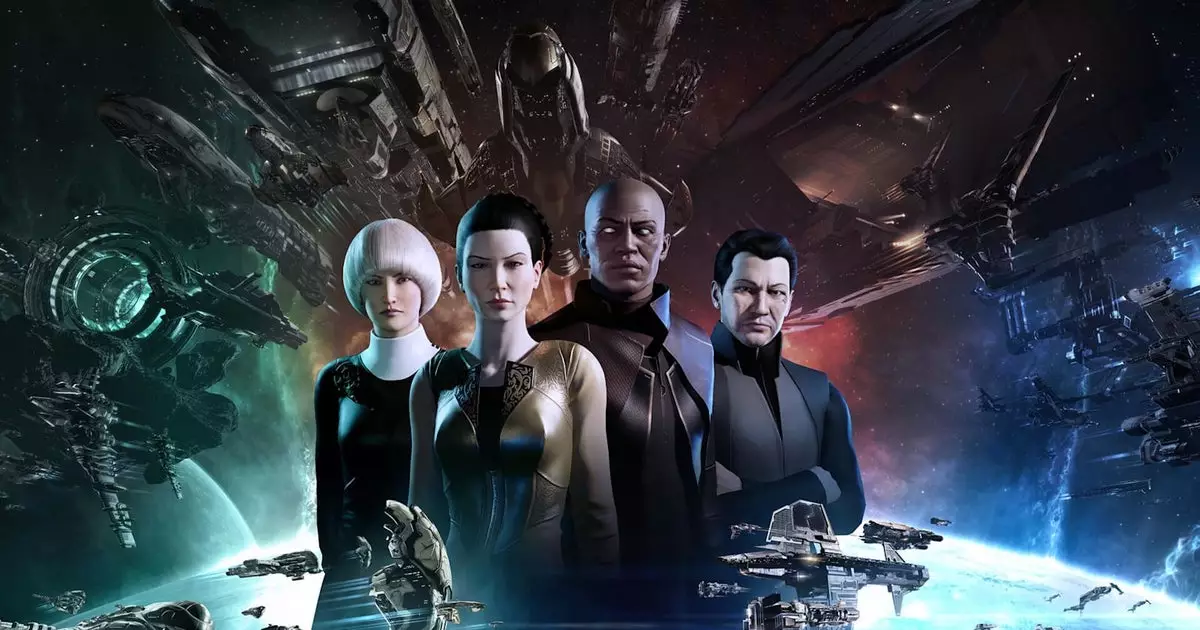EVE Online, renowned for its complex, player-driven economy embedded in a sprawling sci-fi universe, continues to evolve its financial infrastructure in ways that reflect both the game’s unique environment and real-world economic principles. The latest change—shifting the sale of PLEX from regional localized markets to a centralized, galaxy-wide marketplace—signifies more than just a technical tweak; it embodies a deliberate effort by CCP to shape a more balanced, accessible, and transparent economy. This modification challenges long-standing assumptions about scarcity, pricing, and speculation within the game, raising questions about how a virtual economy can mirror or even influence real-world market behaviors.
In essence, CCP’s move to a unified PLEX market is akin to central banking in the real world—aiming to foster liquidity, stabilize prices, and reduce artificial discrepancies. Such a decision underscores the game’s underlying narrative: that player-driven economies are delicate ecosystems susceptible to manipulation and distortion. By consolidating PLEX trading into a single, frictionless market, CCP seeks to curtail artificial inflation and speculative bubbles that favor a few savvy traders, while also promoting a more democratic access to in-game currency that players can leverage for various pursuits—be it years of passive income or instant subscription renewal.
This maneuver is fundamentally about power redistribution within Eve’s universe. Previously, savvy entrepreneurs could exploit regional price differentials, buying low in one sector and selling high in another. While this dynamic added an additional layer of strategy and risk, it also entrenched economic inequality, favoring those with the time, knowledge, or connections to exploit such arbitrage. Moving toward a uniform PLEX price can be seen as a move towards leveling the playing field—making the game economy more predictable and less susceptible to exclusive advantage, which in turn sustains a healthier player community.
From Commodity to Currency: The Unique Role of PLEX
What sets PLEX apart from other in-game resources is its dual nature as both a tradable commodity and a gateway between virtual wealth and real-world currency. As CCP’s flagship monetized item, PLEX embodies the tension between gameplay and real economy: it’s an ephemeral digital asset that can be bought with real money and exchanged for game time, blurring the lines between virtual and tangible value. This unique position also makes PLEX a barometer of player confidence and market stability.
The developers’ objective to stabilize PLEX prices across the entire universe highlights their acknowledgment of this asset’s significance. If PLEX’s value were to fluctuate wildly due to localized shortages or speculative trading, it could distort player perceptions and undermine the legitimacy of its role as a “gold standard” within Eve. A stable price range ensures that the in-game economy functions smoothly and that the value of PLEX remains consistent, encouraging players to view it less as a speculative gamble and more as a reliable means of exchange and access.
While some players may see this move as a means of capping profits and reducing market volatility, others might perceive it as CCP’s attempt to prevent a few wealthy traders from monopolizing the economy or manipulating prices. This balancing act echoes central banking policies: striving to maintain equilibrium, preventing bubbles, and ensuring liquidity for all participants. Such efforts may be viewed positively as fostering a fair economy, but they also raise concerns about whether the game’s economy will become less dynamic or more predictable—striking a fine line between stability and stifling innovation.
The Broader Implications: Economics, Power, and the Human Element
At its core, Eve Online’s economic system is an elaborate mirror of earthly capitalism—full of speculation, monopolies, and sudden wealth. The recent market overhaul serves as a microcosm of how global economies attempt to regulate and stabilize in the face of human greed and strategic manipulation. CCP’s declaration that they act as “custodians and regulators” echoes the roles played by central banks and fiscal authorities, positioning themselves as stewards responsible for maintaining a “healthy” market dynamic.
The implications extend beyond mere game mechanics. As players accumulate wealth, buy and sell PLEX, or hoard assets for speculative gains, they engage in economic behaviors akin to real-world traders. This phenomenon makes Eve a fertile testing ground for understanding larger themes—how artificial scarcity can be exploited, how regulation impacts market health, and how wealth concentrates or disperses within complex social systems. It also invites reflection on whether virtual economies, governed by human greed and ingenuity, can genuinely be equitable or if they inherently perpetuate existing patterns of inequality.
Furthermore, this move comes amidst the shadow of CCP’s broader ambitions, notably the push toward “Eve Frontier,” a blockchain-powered spin-off that ventures into the realm of cryptocurrencies. While CCP promotes stability and fairness within Eve’s core universe, external signals hint at a desire to integrate or experiment with real-world economic principles through blockchain and tokenization. Such developments raise critical ethical and practical questions: Should players trust a system where their virtual assets are linked to real money, or does this edge Closer to speculative munition that could destabilize the very economy CCP seeks to regulate?
In the end, CCP’s strategic adjustments to Eve’s market structure are an insightful reflection of how virtual worlds serve as laboratories for economic experimentation. These changes, with their promise of a fairer, more predictable, and less manipulable market, also expose the underlying tensions between free enterprise, regulation, and the human instinct for profit. Just as the universe of Eve is a battleground of titanic corporate struggles, so too is its economy a narrative of balancing chaos and order—an ever-evolving story of power, opportunity, and human nature.

